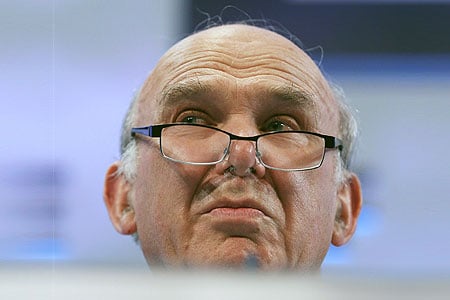Britain To Legalize Burning Private Copies of Music, Video
Britain's business secretary, Vince Cable, announced today that the government plans to pass legislation allowing citizens to make legal copies of CDs and DVDs they own. The new law will also allow UK citizens to engage in "form shifting;" the term refers to the right to burn legally downloaded materials to physical media.
(This last right isn't something US citizens enjoy. Copyright.gov states: "You are not permitted under section 117 to make a backup copy of other material on a computer's hard drive, such as other copyrighted works that have been downloaded (e.g., music, films)."
"This brings the law into line with, frankly, common sense," said Secretary Cable. "A lot of this has to do with consumer freedom. We need to have a legal framework that supports consumer use rather than treat it as regrettable. We can't say that businesses should embrace technology but say to consumers they can't use technology for products they have paid for."

Vince Cable, looking awesomely grumpy
Cable made this announcement amidst news that the government was dropping its bid to block access to file-sharing websites on the grounds that doing so was cumbersome and technologically unworkable. Ironically, even as the government official plans to make private copying using decade-old technology legal, questions regarding the nature of cloud streaming and the rights of those who subscribe to such services are rising towards the spotlight.
As for the United States, consumers have an explicit right to back up computer software and courts have generally held that individuals may copy music or movies for use in a digital player or for playback via hard drive. The question of user rights as they pertain to downloaded material is murkier; cloud streaming has scarcely been addressed at all. The US's copyright laws might be slightly more modern than the UK's equivalent structures across the pond, but the majority of proposed changes to copyright law since the DMCA was passed in 1998 have overwhelmingly favored rights holders while restricting the concept of fair use.
(This last right isn't something US citizens enjoy. Copyright.gov states: "You are not permitted under section 117 to make a backup copy of other material on a computer's hard drive, such as other copyrighted works that have been downloaded (e.g., music, films)."
"This brings the law into line with, frankly, common sense," said Secretary Cable. "A lot of this has to do with consumer freedom. We need to have a legal framework that supports consumer use rather than treat it as regrettable. We can't say that businesses should embrace technology but say to consumers they can't use technology for products they have paid for."

Vince Cable, looking awesomely grumpy
Cable made this announcement amidst news that the government was dropping its bid to block access to file-sharing websites on the grounds that doing so was cumbersome and technologically unworkable. Ironically, even as the government official plans to make private copying using decade-old technology legal, questions regarding the nature of cloud streaming and the rights of those who subscribe to such services are rising towards the spotlight.
As for the United States, consumers have an explicit right to back up computer software and courts have generally held that individuals may copy music or movies for use in a digital player or for playback via hard drive. The question of user rights as they pertain to downloaded material is murkier; cloud streaming has scarcely been addressed at all. The US's copyright laws might be slightly more modern than the UK's equivalent structures across the pond, but the majority of proposed changes to copyright law since the DMCA was passed in 1998 have overwhelmingly favored rights holders while restricting the concept of fair use.

